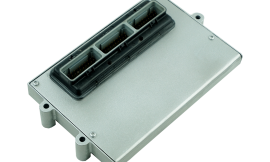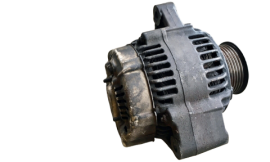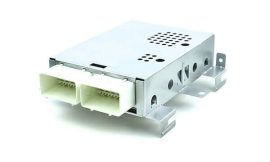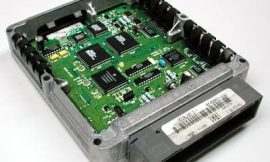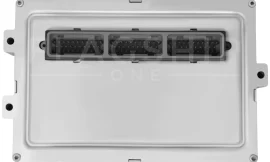Last updated on April 7th, 2022 at 06:19 pm
The 2006 Toyota Camry is considered one of the most reliable sedans. It’s quiet, comfortable, offers enough interior room, efficient and has an impressive resale value. The vehicle boasts a positive reputation for reliability and is moderately priced. However, like any other locomotive, this car has sprung various concerns from verified owners in the recent past. A hesitant automatic transmission is one of the multiple problems most drivers of Toyota Camry reported.
You might also experience other erratic vehicle behavior, such as an activated check engine light. So, it’s recommendable to perform consistent diagnostic tests and maintenance to improve your car’s longevity. Here are other 2006 Toyota Camry problems:
Check engine light initializes due to failed oxygen sensor component
A failed oxygen sensor means there are more than enough contaminants entering the exhaust. When this happens, it can significantly hinder your fuel-delivery and combustion systems. The thrown off systems will result in several errors that will disrupt the air to fuel ratio mixture. They might also cause too much fuel to get injected in the engine reducing the vehicle’s mileage. If not addressed promptly, the issue can escalate, leading to higher consumption. Some examples of contaminants that lead to erratic behavior include silicates which result from a leaky crack in the combustion chamber. Phosphorus is also a common residual contaminant that comes from excessive oil consumption because of old valve guides. However, replacing the worn-out valves with legitimate replacements should solve the problem.

The automatic transmission might hesitate when speeding
One of the most common causes of automatic transmission hesitation is a defective clutch that fails to engage as required. This can reveal itself in several frustrating ways and a shifting hesitation is a clear sign that the vehicle has transmission issues. When this happens, you won’t be able to smoothly shift between gears. Therefore, when your 2006 Camry displays hesitation when using the automatic shift, you might have a dysfunctional clutch that needs repair or a replacement. Another common transmission defect sign that you’ll regularly notice is the presence of a burnt smell and a seemingly dark transmission fluid. This should prompt any owner to seek credible professionals help with the repairs.
Power steering pump and hoses may leak
Not having your vehicle’s power steering is a bit inconveniencing if you are used to it. However, if you have a faulty power steering pump, there will be no power steering. This defect will become more evident when you try to halt the car during low speeds. When you make turns and the steering keeps moaning, it’s probably a leak in the power steering lines, pumps, steering gear, or hoes. A slow-responding, stiffened steering wheel is another symptom of leaking pumps. You might also hear squealing noises when the vehicle starts. The leaks often occur where the pump body and shaft are separated and the former connects to a pulley. If you notice a leak here, it advisable to replace your power steering pump with high-quality spares.
The automatic transmission may not shift correctly
Of all the issues that fifth-generation Camry owners complain about, this is the most frequent. However, if the car has high mileage, something that nears or beats 125,000-150,000, the automated transmission will have issues shifting. The problem arises because of misplacement in the throttle position sensor, but readjusting the component should clear the problem. Another cause of a flawed transmission can be a defective shift solenoid. An erratic shift solenoid becomes apparent with several signs, including a transmission that is stuck in neutral. You will notice a rugged and choppy gear changing as well as a problematic downshifting. The engine will also continue to revolve even after applying brakes and this can be quite dangerous. However, the transmission won’t need to be entirely overhauled during repairs.
Valve cover gaskets may leak oil
How safe is it to drive with a valve cover gasket issue? If the leak is negligible and doesn’t drip onto torrid engine components like the exhaust manifold, it’s pretty much safe. However, you should fix the problem immediately when you get the chance, as this may make the gasket lose its integrity and lower engine performance. As such, it’s advisable to seek ASE certified mechanics to make the necessary repairs. Other signs include an oil-covered valve, smoke from the cabin and a burning smell when the engine starts to run.
A leaky valve is only one of the simple problems that the 2006 Toyota Camry owners face. However, observing proper maintenance measures should keep most of the issues at bay and give you a better driving experience.
FAQ,s about the 2006 Toyota Camry
The 2006 Toyota Camry is a comfortable, quiet, roomy and reputable sedan. It’s popular among drivers who fancy durable and reliable car trims. However, the car costs more than most competitors and vehicles fitted with V6s aren’t as strong as others in the same class.
According to consumer reports, with proper maintenance, your sedan can last over 200,000 miles and only 65,000 miles when neglected. With this in mind, it’s imperative to observe frequent maintenance from certified professionals to get the best results.
The three Camry models to avoid include the 2007, 2008 and 2009 trims. These three have well-known engine defects that manifest as burning oil.
This is a top-ranking sedan to drive if you need a high mileage vehicle. Even though the standard lifespan is 200,000 miles, mileage can significantly rise depending on the type of miles put on the car. For the average buyer, this car will last long enough before you need another.





